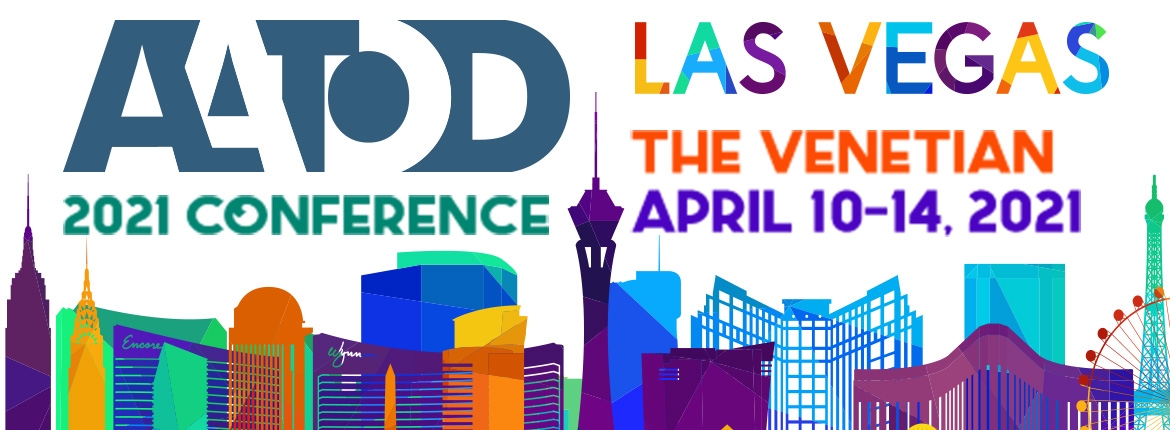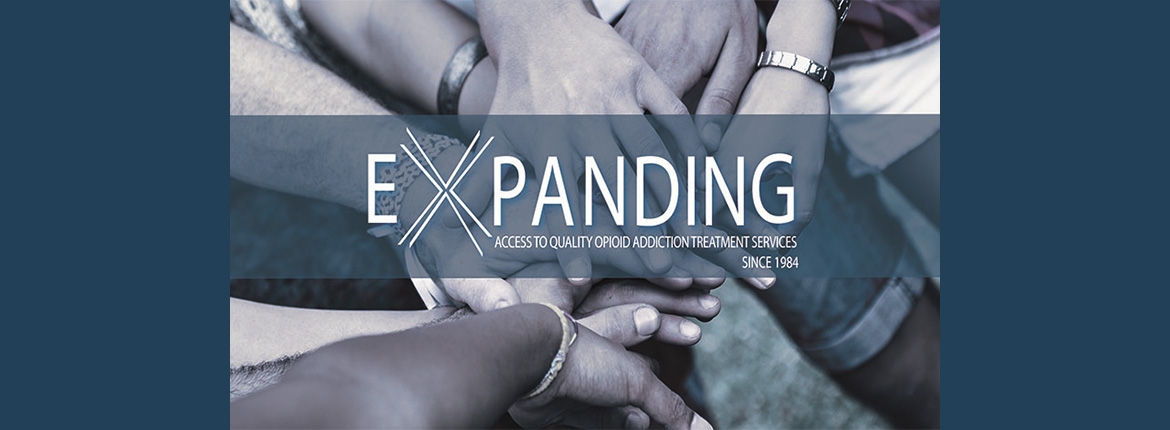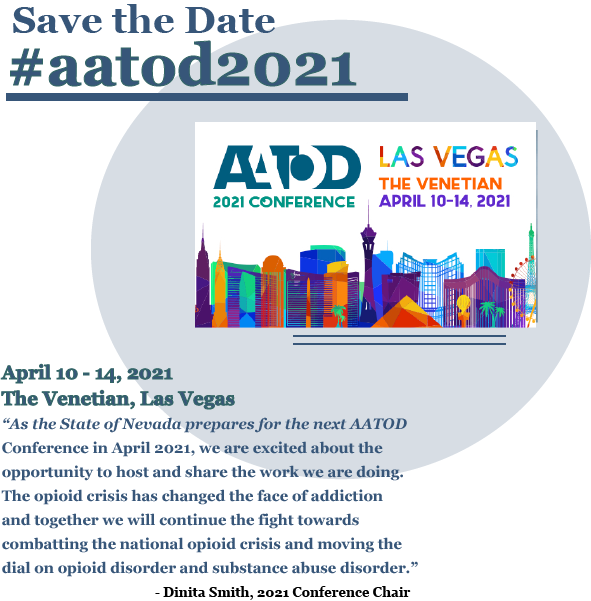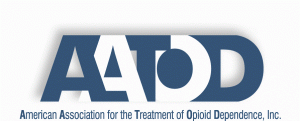
AATOD...Follow Us 💫
















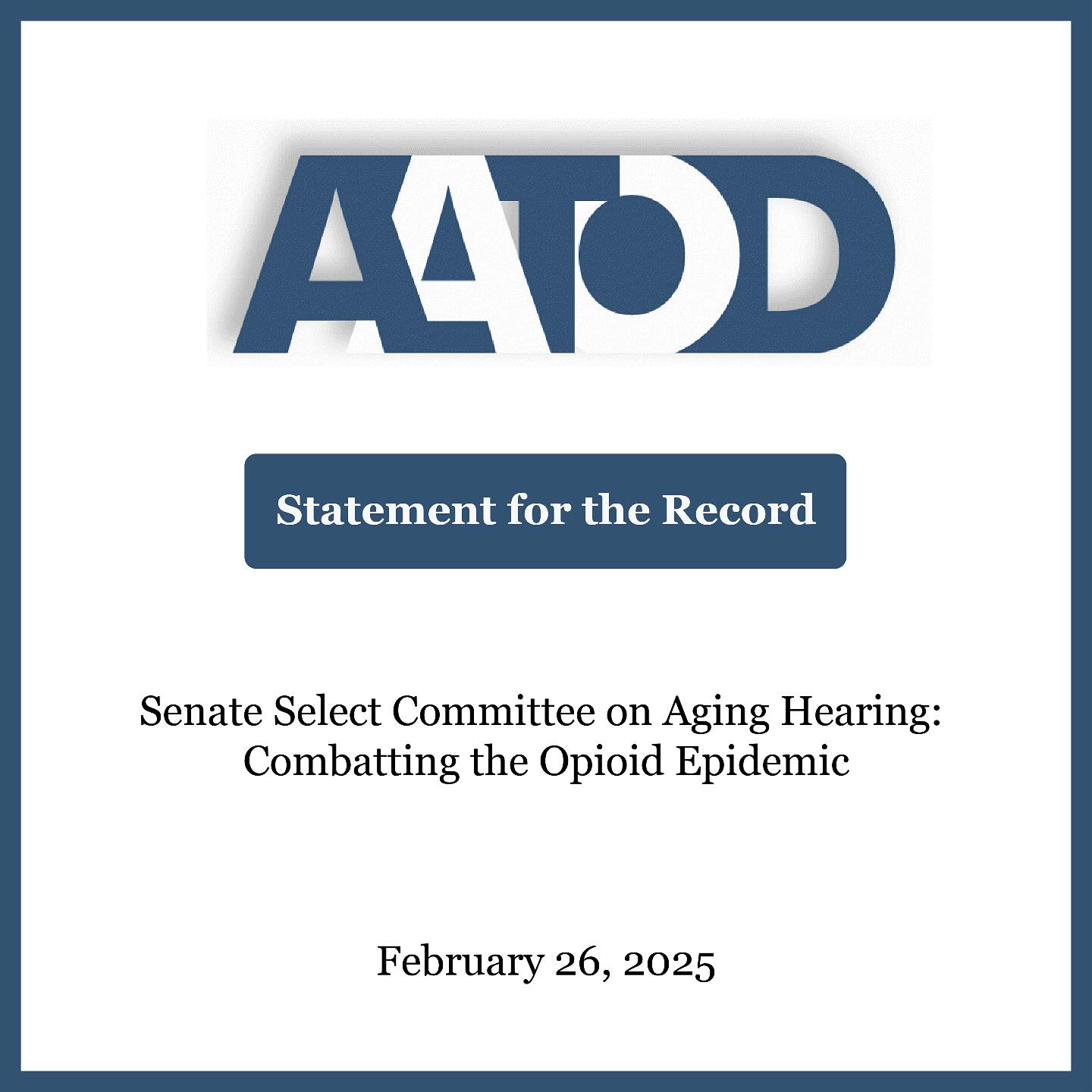
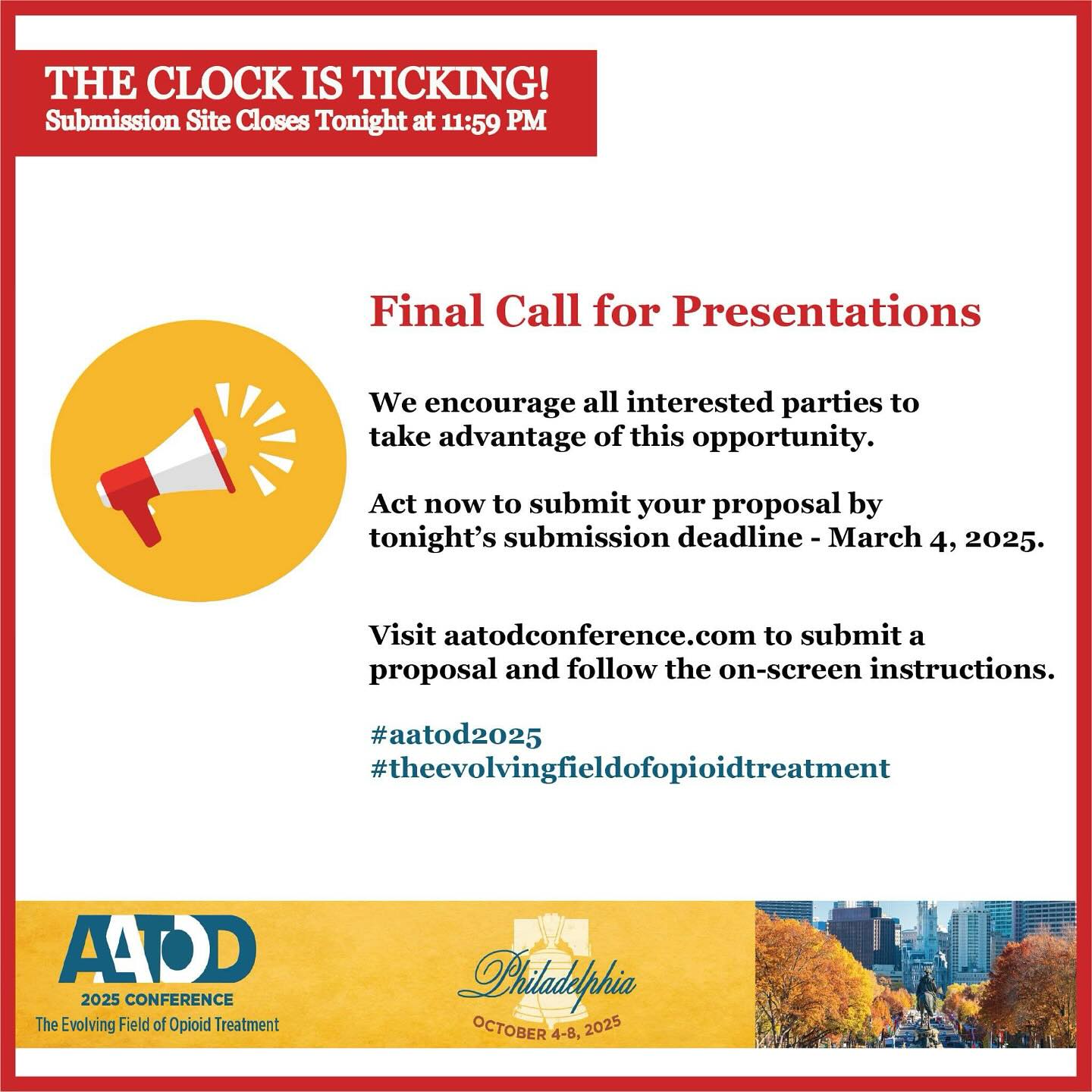
This is the final notification for our early reg conference deadline of today, 6/30. The registration must be submitted prior to midnight. We hope to see you in Philadelphia this October!
http://aatodconference.com
#aatod2025
#theevolvingfieldofopioidtreatment
The Evolving Field of Opioid Treatment
AATOD proudly presents the world’s premier training conference event for the treatment of Opioid Use Disorder.
Early Registration Deadline: June 30, 2025
www.aatodconference.com
It’s Here…Conference Workshop Lineup!
View the comprehensive workshop listing and descriptions of the conference sessions.
Marketing & Advertising Opportunities
Exhibits & Sponsorship
Don’t miss out on the chance to show your support, share your products/services and secure your sponsorship at the AATOD 2025 Conference. You can now purchase exhibit booths, select sponsorship opportunities and register badges directly through the portal HERE. You can also learn more about exhibit opportunities and benefits on our conference website.
AATOD, Inc.
225 Varick Street, Suite 402
New York, New York 10014
Contact Us
Phone
: 212-566-5555
Email
: info@aatod.org

